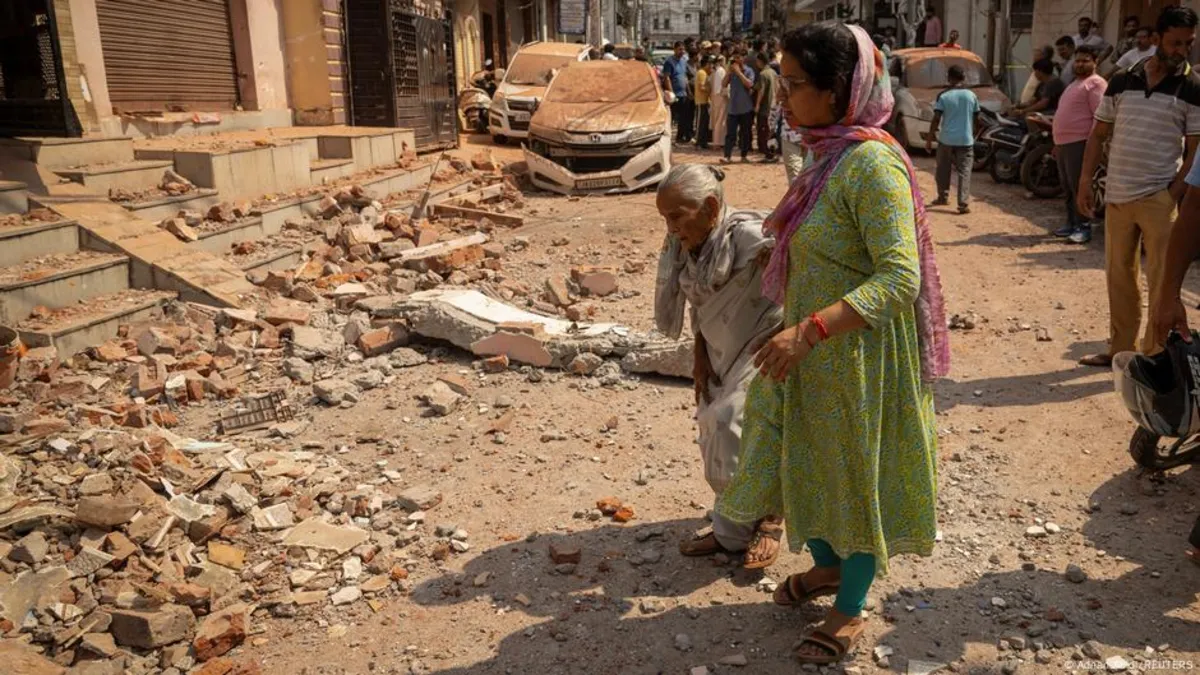
On May 10, 2025, Pakistan initiated a series of air strikes against India in response to claims that Indian forces targeted three of its air bases overnight. The situation has escalated dramatically, with explosions reported in multiple cities as the international community calls for immediate de-escalation of tensions.
According to the Pakistani military, Indian missiles were fired at air bases within Pakistan, prompting a swift military response. Explosions were notably heard in the cities of Srinagar and Jammu, while the Indian army reported the successful interception of multiple enemy drones over Amritsar.
US Secretary of State Marco Rubio has urged both nations to establish communication to prevent miscalculations that could lead to further conflict. His calls for dialogue come amid ongoing military tensions and cross-border skirmishes.
As the crisis unfolds, the Indian government has taken drastic measures, ordering the blocking of approximately 8,000 accounts on the social media platform X and removing content related to Pakistan from various digital platforms. This action has notably impacted several Indian news outlets, including Maktoob Media, The Kashmiriyat, and The Wire.
The roots of the Kashmir conflict date back to the partition of British India in 1947. The Muslim-majority region was granted the choice to join either India or Pakistan. Initially seeking independence, the Maharaja of Jammu and Kashmir ultimately decided to accede to India following a Pakistani invasion. This led to the first Indo-Pakistani war and a subsequent UN ceasefire, which established the Line of Control (LoC) separating the two nations' territories.
Since then, both countries have claimed full sovereignty over the region, resulting in sporadic conflicts interspersed with periods of relative calm. The election of the BJP in India in 2014 marked a significant escalation in tensions, particularly after the revocation of Jammu and Kashmir's autonomy in 2019.
In the latest round of violence, Pakistani officials have reported that 11 civilians, including a child and four women, were killed in overnight shelling by Indian forces near the LoC. The Pakistani Information Minister, Mazhar Saeed Shah, conveyed these figures to the press, though they remain unverified independently.
In a recent statement, Pakistan’s Foreign Minister Ishaq Dar emphasized that his country does not prioritize war but is left with no alternative following India's military actions. He expressed hope for renewed dialogue with India but asserted that Pakistan had no choice but to respond to ongoing aggression.
As the situation deteriorates, China has also called on both India and Pakistan to prioritize peace and stability, urging restraint and the pursuit of a political solution. This appeal comes amid heightened tensions, with China maintaining close economic ties with Pakistan while navigating a more complex relationship with India.
Moreover, the US has actively engaged in mediation efforts, with Secretary Rubio encouraging both sides to communicate directly to reduce the risk of miscalculations that could lead to a broader conflict.
Reports indicate that the Indian military has conducted strikes targeting Pakistani military bases, with claims that the strikes were a response to missile attacks launched from Pakistan. The Indian military has stated that it remains committed to non-escalation if Pakistan reciprocates, while tensions continue to rise with the mobilization of forces along the borders.
In summary, as both nations engage in military actions and retaliatory strikes, the need for diplomatic dialogue becomes increasingly critical. The international community watches closely, advocating for peace and stability in the region.